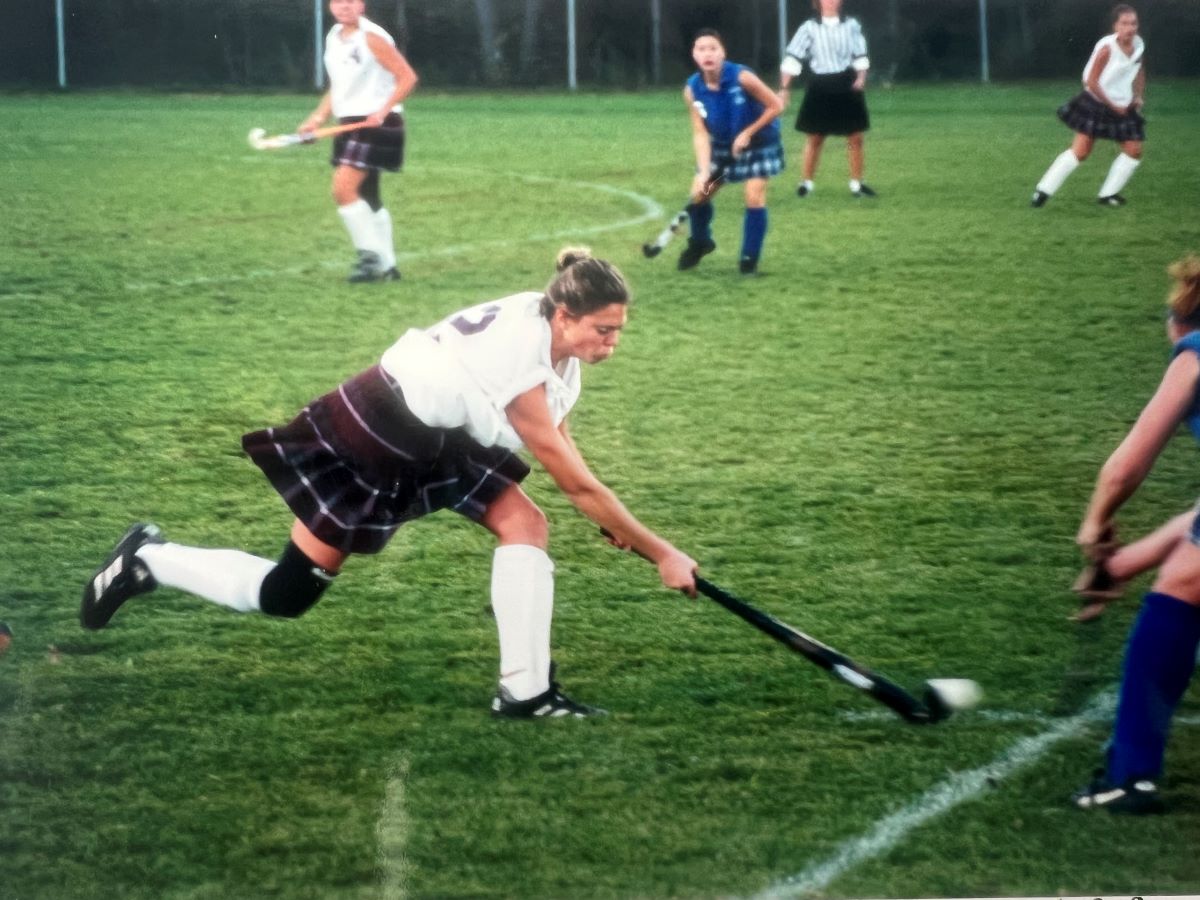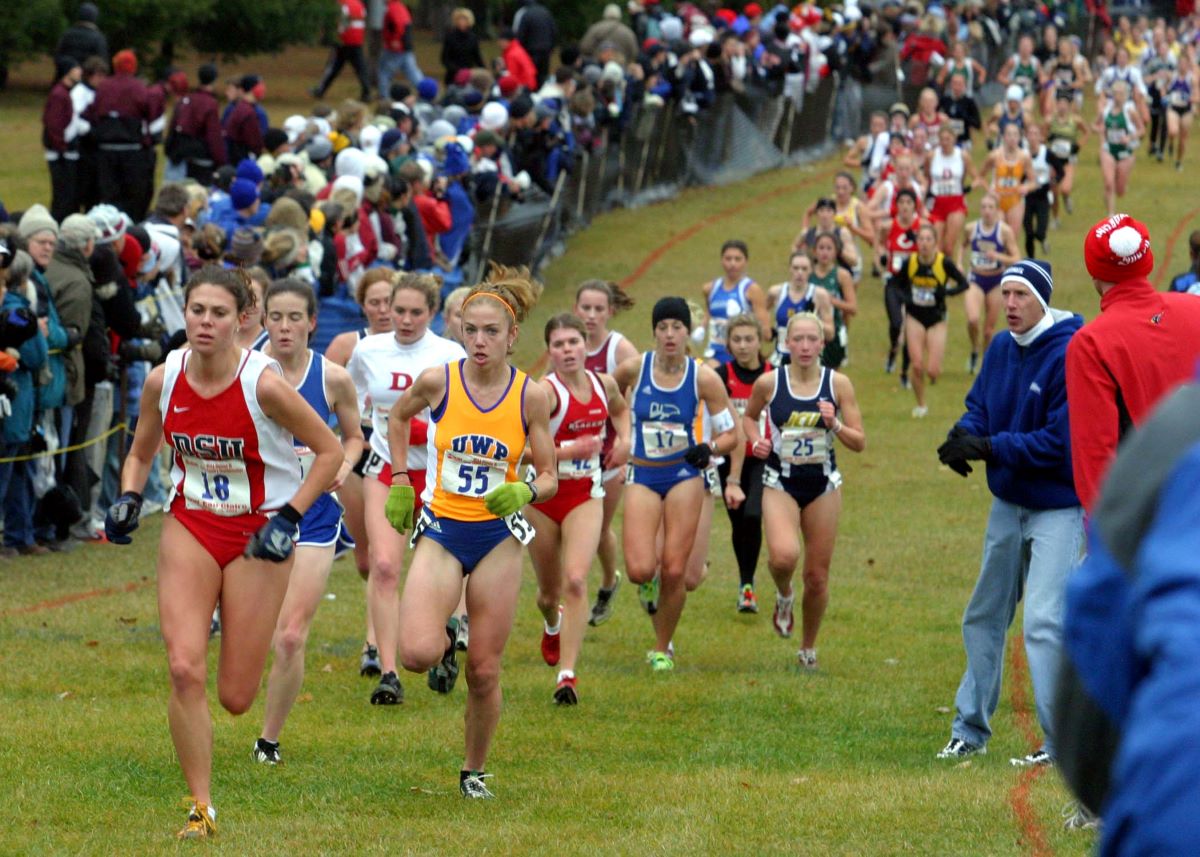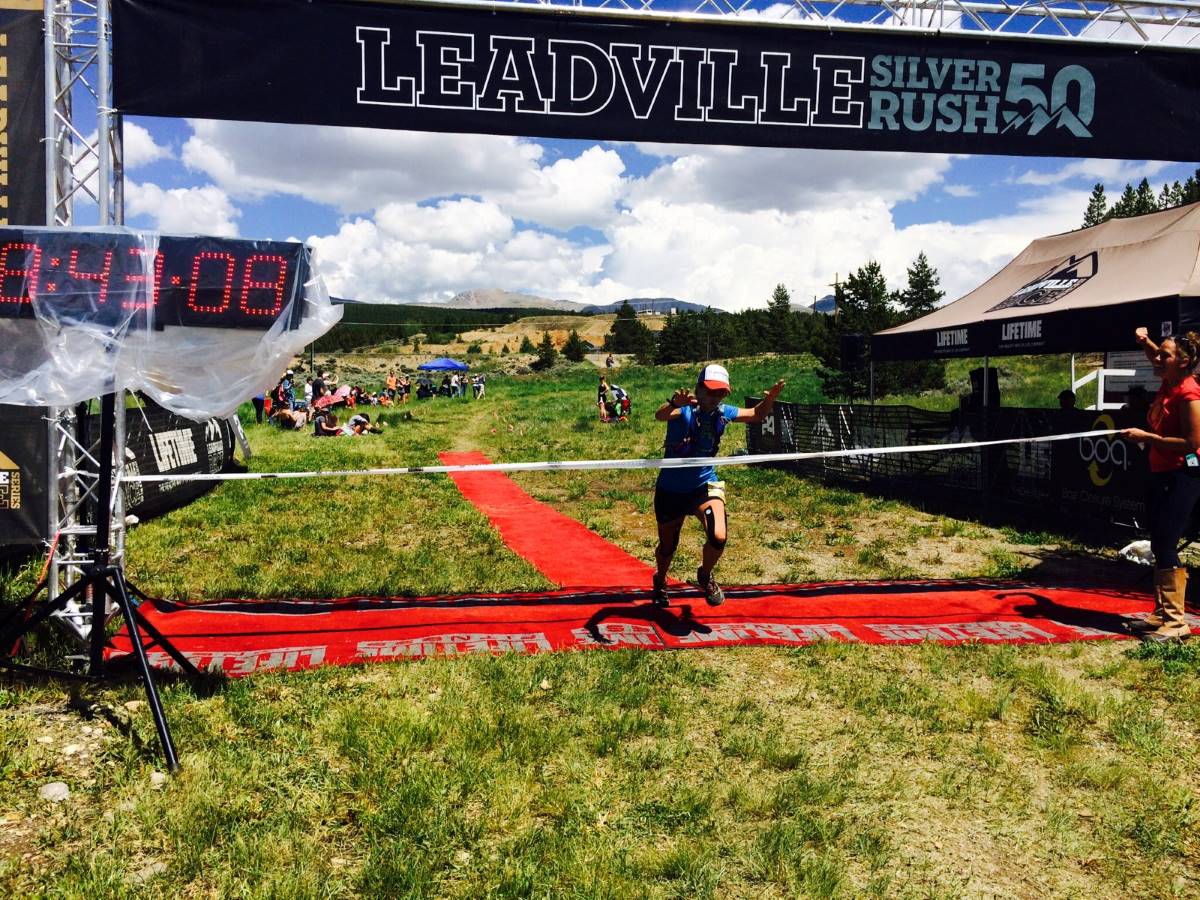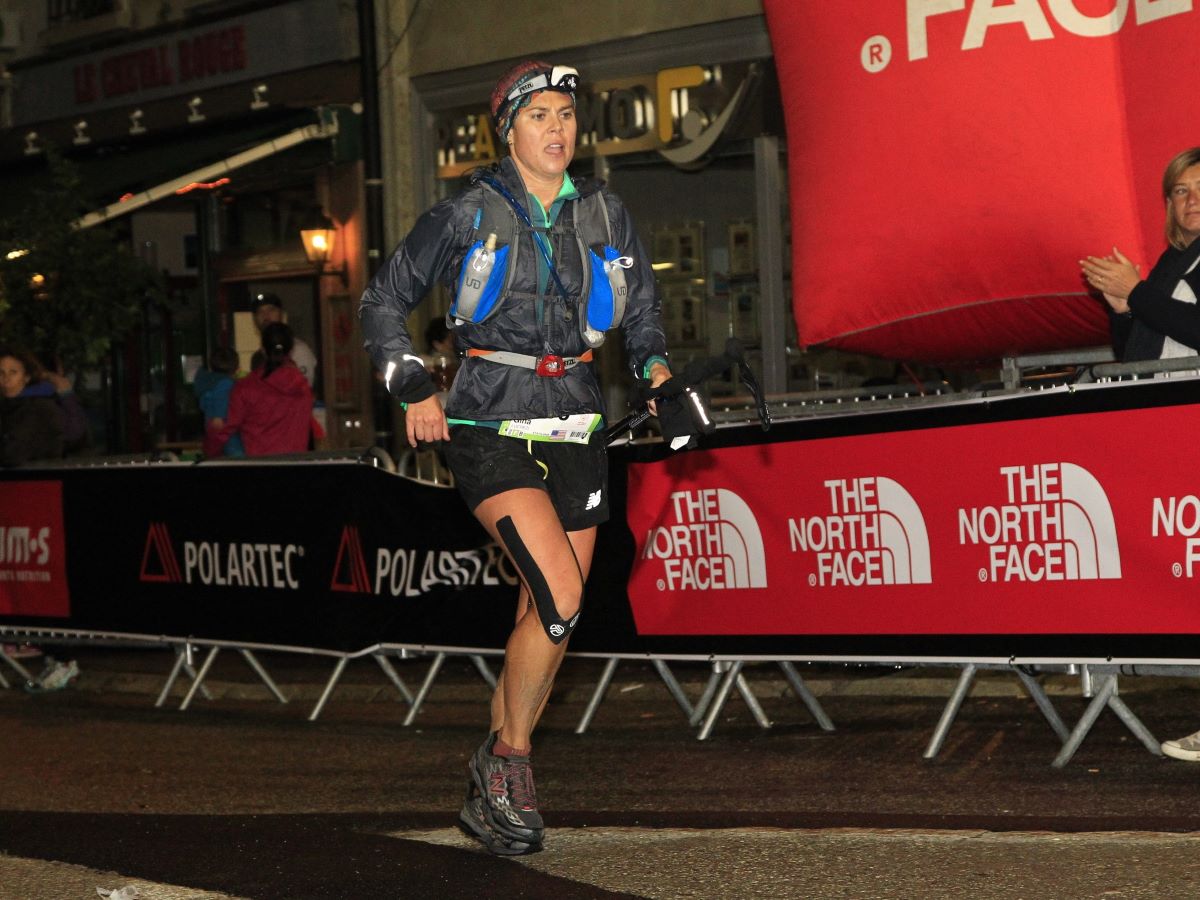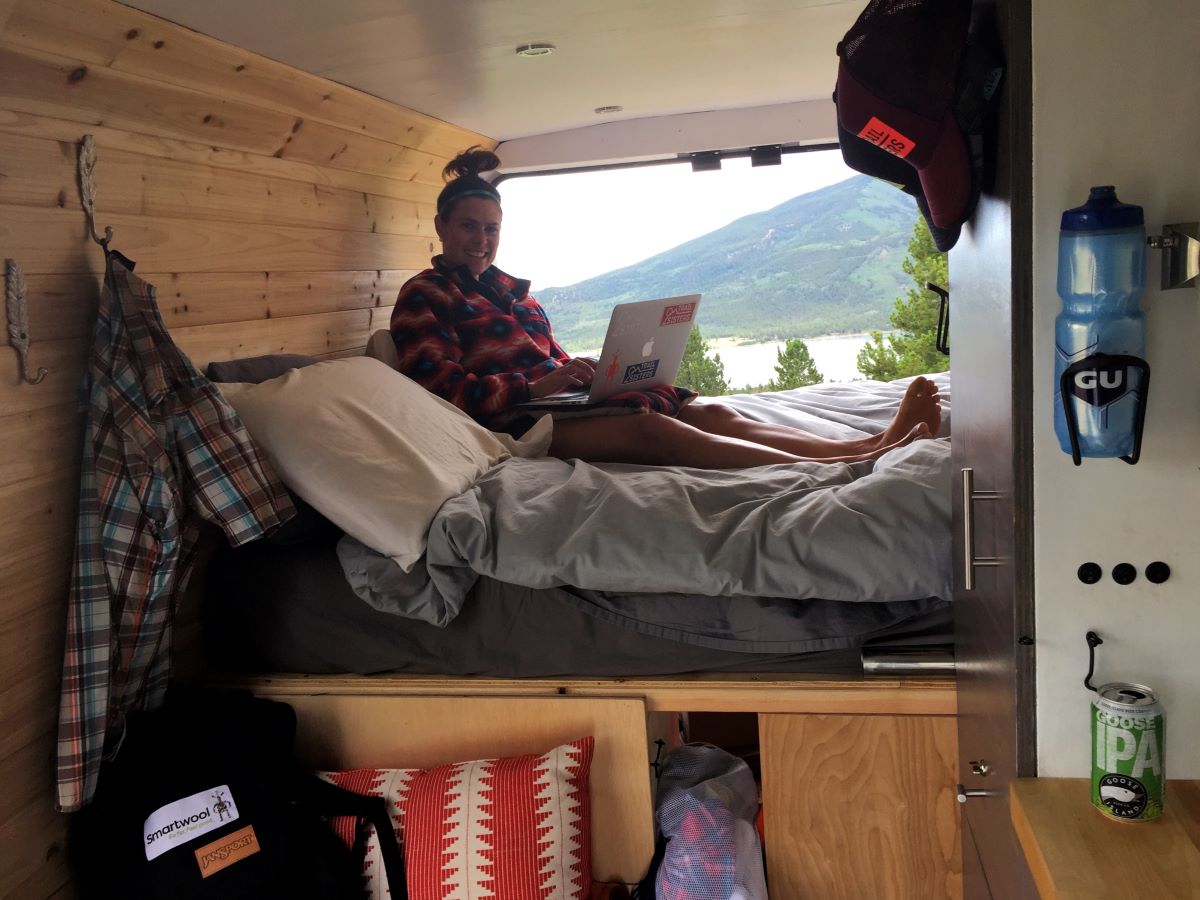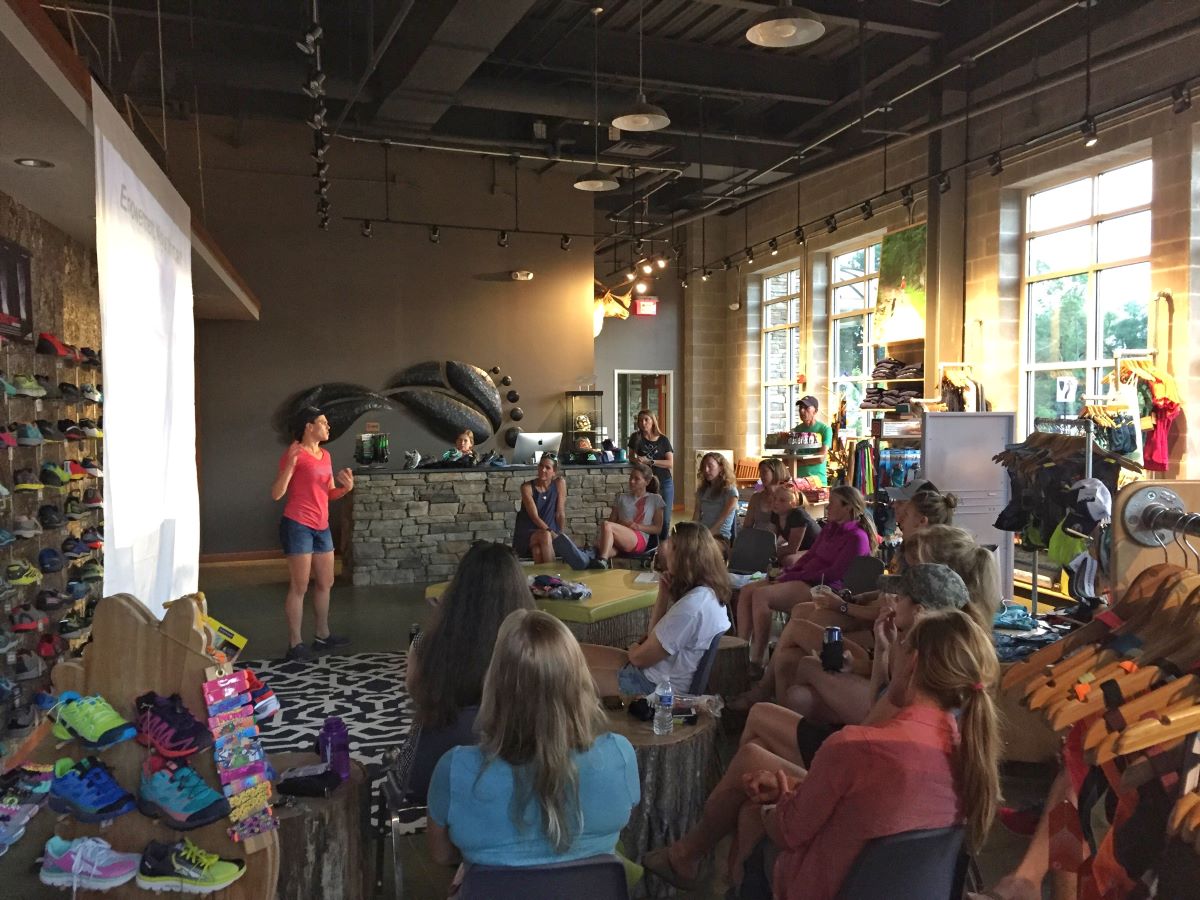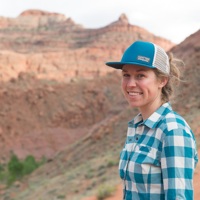When Gina Lucrezi started the Trail Sisters online journal from Squarespace at her kitchen table in April 2016, she had no idea the space would balloon into the international community and education space it is today. Close to 40,000 women are now connected through the Trail Sisters’ local chapters, newsletter, reading the journal, or participating on the 1,000-member team.
“It was a passion project and wasn’t supposed to be more. We wanted to provide people with helpful information and invite them into the sport and community.”
Readers might remember the Trail Sisters’ name from the iRunFar column, which Lucrezi penned alongside Ashley Arnold (now Cohen) from 2014 to 2017. Lucrezi shared, “When asked for a column title, I chose the name Trail Sisters because that’s how Ashley and I thought of each other … Ashley and I wrote the Trail Sisters column for some time, and then eventually Pam Smith and Liza Howard joined in the column. It was a blast sharing my experience and stories with the other columnists. Later on, I used the same name when I started my own venture: Trail Sisters.”
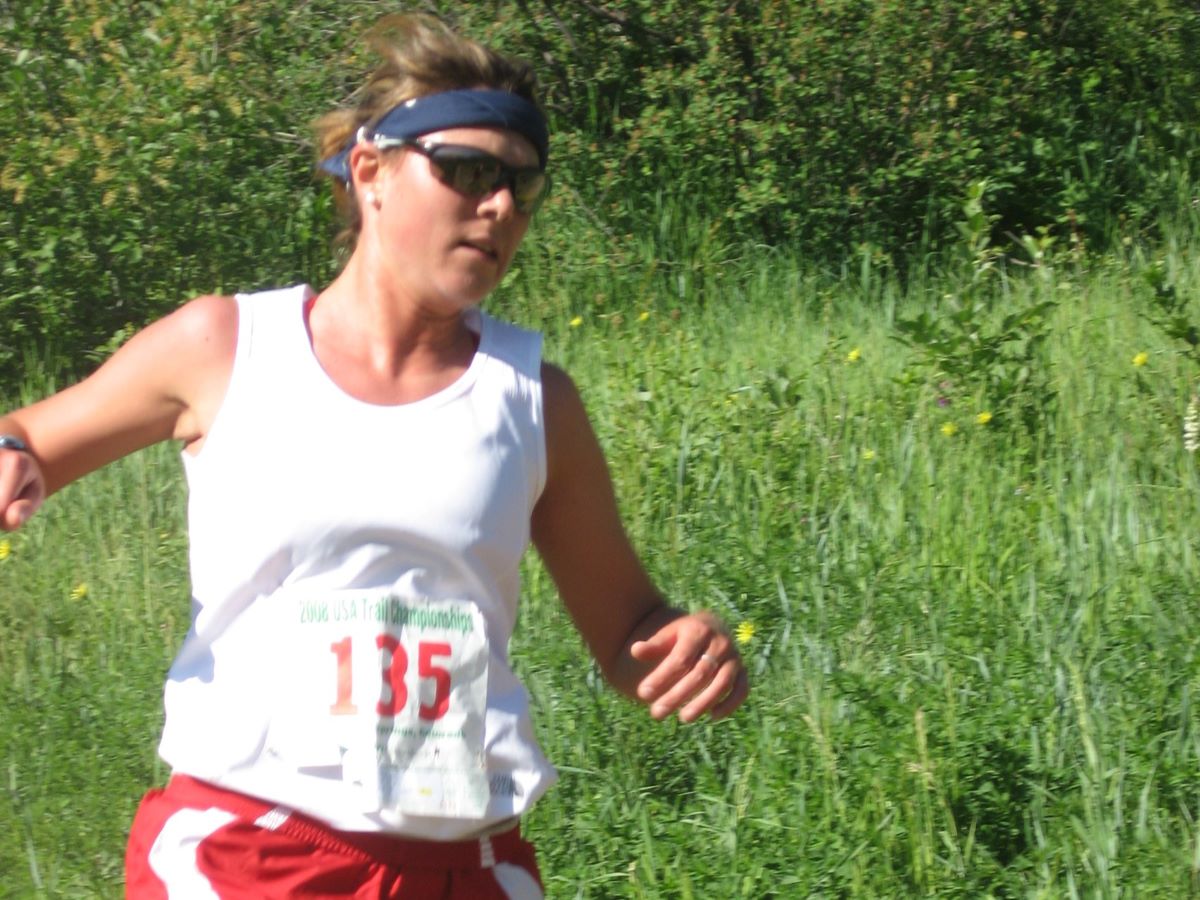
Gina Lucrezi running her first trail race, the 2008 USA Trail Championships. All photos courtesy of Gina Lucrezi.
At the time when Trail Sisters launched, Lucrezi lived in Boulder, Colorado, and worked as a contractor for Julbo, Ultimate Direction, and Vasque, doing marketing, team management, and athlete management. For the past decade, her work has overlapped with the trail running world. Two years after earning her master’s in Sport Management from East Stroudsburg University of Pennsylvania, in 2008, the athlete moved to Southborough, Massachusetts, to work as a marketing manager for inov-8.
Later, in 2011, she relocated to Carbondale, Colorado, where she took a seat with “Trail Runner Magazine” as the Advertising Sales Manager. Over the years, she also took roles as the Business Development Manager at iRunFar and Athlete Manager for Red Wing Shoes.
“I learned that in the industry and sport, there was a lack of perspective and voice from women. I thought we could gather athletes’ thoughts and viewpoints in a collection of crowdsourced information to provide a resource for other women — and for men, too. It would be a space to celebrate that female perspective,” says Lucrezi.
Raised in Bangor, Pennsylvania, Lucrezi was used to small-town, rural life where ranching and farming are juxtaposed with mining quarries, which came full circle when she settled down in Buena Vista, Colorado, where she lives today. As a kid diagnosed with attention-deficit disorder, her running ability was discovered after she started seventh-grade field hockey. At home one day, her mom bribed Lucrezi with a $5 bill to run one mile around the neighborhood development to burn off energy. Lucrezi doubled down, ran two miles, and told her mom she owed her $10. As a high school freshman, she joined track and broke the school’s mile record that year. The following year, she added fall season cross country to the mix. She’d show up for run drills and then go straight to field hockey to practice passing and technique.
“I enjoyed playing field hockey more than cross country. I’m a team sports person, and that’s a very far connection to Trail Sisters,” says Lucrezi. She always ran the mile in track but also ran the 4 x 800-meter relay and two mile in addition to the five-kilometer distance in cross country. By her senior year, she’d won and broken the course records for all eight cross-country races she’d run, followed by racing at the state and district meets.
Her skill only grew at DeSales University, where she graduated as a 10-time Division III NCAA All-American and national champion for the indoor 1,500-meter run, which she won as a junior and “was icing on the cake,” she says. She competed at nationals across a range of events: cross country, the steeplechase, the indoor and outdoor mile, indoor 5k, the 1,500 meters and 5,000 meters for track.
After college, her family encouraged her to use her degree to get a stable job versus pursuing a full-time career as a runner, and she understood that sentiment. Lucrezi had earned her undergraduate degree in television and film. Before grad school, she went straight into a year working as the video traffic manager and communications coordinator for a media agency housed in the Comcast Center in Philadelphia, mostly working with the 76ers and Flyers. While earning her master’s, an internship with the U.S. Olympics Committee brought her to Colorado, which introduced her to the sport of trail running. While working as the Sports Performance Department Manager, Lucrezi met Nancy Hobbs, who founded the American Trail Running Association (ATRA) in 1996.
“I went out on a trail run with her in Colorado Springs. There was a quite steep, intense pitch toward the last section — I had to hike, which was foreign to me. In college, I was a 10-time All-American … and Nancy passed me with pitter-patter steps. She’s maybe 15 years older than me. I remember thinking, What’s going on here? I was interested after that. We went out the following weekend on Columbine Trail, and I did much better my second time,” recalls Lucrezi.
She’d never pursued road marathon running but compared the trails to her track and cross-country career. “The cadence was different, and that first run taught me a lot. I can’t run like I would on roads or track — this is different. The views and experience were also so much more unique than anything I’d run before. That’s when I got fired up again with racing and started with 10k or longer,” says Lucrezi, who branched into ultra distances when she moved back to Colorado for the job with “Trail Runner Magazine.”
In the Roaring Fork Valley, her life began to revolve around running trails. Then-Associate Editor Ashley Cohen was Lucrezi’s colleague, housemate, and training partner while the two climbed their athleticism into semi-professional tiers. “Neither of us was making money running, but at that time, there wasn’t much money in the sport. I was with inov-8, we were both with Salomon, and she was with The North Face. We worked, trained, and lived together. She’d ventured into ultras and introduced me,” says Lucrezi, who signed up for the 2012 Speedgoat 50k.
“Going far sounds a little daunting, but you get to run a little slow — for my whole life, running was fast before that. It turns out it’s quite hard to jog a long ways. It was a different world of things in that sense,” she says.
Over the years, her favorite ultra distance became either the 50k or 50 miles. “It gives you enough time to let you explore and allows the race to change in different ways. A 50 miler will put you outside for a lot longer, but you can still sleep in your own bed at night. With ultras, my stomach doesn’t work well all the time with nutrition, and that’s as far as I can go without having poor nutrition issues,” she shares.
Going from laps around a Mondotrack to exploring and seeing new landscapes inspired her to keep going. “Being able to get to places most people would never go is neat — the reward of pushing your body to travel to areas you can’t get to by vehicle,” she says.
Often, Lucrezi noticed that the “intense, untamed, rough and tumble” space of trail running was perceived to be “too much or inappropriate for [women] to enter” at the time, she says. Lucrezi wanted more women to get exposed to a fresh mindset: Even though the sport is not in a “controlled” space, “it does not mean you should be scared of it. You should be aware. And there’s so much you can experience that you can’t anywhere else,” Lucrezi thought, which eventually led to Trail Sisters.
After starting the online journal, Trail Sisters started to offer retreats so that participants could meet in local areas. After one year, 20 local groups blossomed into 50. Today, more than 150 Trail Sisters chapters exist nationwide, plus one in Europe and several in Canada. All of the groups are volunteer-led with at least two leaders and are based around a region, town, city, or unique landmark in a state.
Furthermore, Trail Sisters has provided inspiration for women-only trail running groups and initiatives the world over, including She Summits, in Ireland.
One of the principal policies of Trail Sisters is that the events and runs are no-drop, so everyone intermittently waits for the group to rejoin. “We wanted to remove barriers of entry as much as possible. We want to invite them in and make them feel welcome. They’re more social-based and not a competitive-based group. You don’t go to group runs or events if you want a workout — you want social interaction, to get miles in, to learn about trails whether you’re trail running or hiking, and it’s to build overall well-being and camaraderie while working on skills. Creating that community feel was my vision of growing overall participation in the space,” says Lucrezi.
Trail Sisters struck a chord, and Lucrezi realized she needed to pour time and energy into helping the space and community grow. Her then-partner, now husband, Justin Patrick Keller, left his position with Ultimate Direction to work as operations director to do technology and website management for Trail Sisters. The duo did a year of van life countrywide to connect with communities in person about Trail Sisters.
Today, in addition to local chapters that are unified and can connect on a single website, the hybrid organization offers complimentary courses on a range of topics from nutrition to how-to skills with quizzes at the end. Brands can sponsor the courses.
“The more people understand, the more empowered and confident they are to go out, and they can feel better about inviting others and aspire to do more. Now that they understand the sport, they can share it with others. Education is the key to everything,” says Lucrezi.
The Trail Sisters Team is another way for community members to get involved. Through the $50 annual membership, participants receive technical gear with the group’s logo. “We wanted there to be something available for the women that wanted to take their level of interest in the sport and Trail Sisters to another level. They are the ones flying flags the hardest at events and races,” says Lucrezi. Members also receive discount codes, stickers, and access to special events and the Trail Sisters Speaker Series webinar, which is released with exclusive access after the live recording. The membership also helps Trail Sisters keep the lights on.
For instance, Lucrezi is working on a four-part series focused on long-distance training perspectives, including one focused on how to transition to the 100-mile distance and another on how to be a single mom while training for a 100k or 100 miler. Trail Sisters also sells merchandise, which is a simple way to support the organization and spread the message of inclusivity.
In addition to Trail Sisters, Lucrezi was invited to be a board member for Hardrock 100 and helped to implement key changes for the lottery, which had become outdated as more interest grew from female athletes to participate in the race. She’s also participated in question-and-answer events at the Leadville 100 Mile, Hardrock 100, and Western States 100 to share her perspective on the sport’s participation and what the industry can do to invite more athletes.
After dabbling in myriad positions across traditional sports, the trail running industry, and her athletic career, Lucrezi isn’t changing course anytime soon. She says, “The ultrarunning community is really like family. When you’re outside, there’s something about that primitive setting, where we just all get it. We have a lot more in common than we realize. We’re all enjoying aspects of the outdoors, like the sound of the birds or looking at the wildflowers, and we can all appreciate nature, the ambition to travel on foot, and to push our own limits — it’s quite different than other sports. Sometimes it feels like survival in an uncontrolled area in the wilderness. We’re doing something special and supernatural to our beings. It’s also easier to have long-term friends and instant success with feeling welcomed because, at the end of the day, you really only need a pair of shoes to go on the trails.”
Call for Comments
- Have you encountered Gina Lucrezi or the Trail Sisters before?
- Do you know of similar organizations that are helping women to gain access to the trails?
